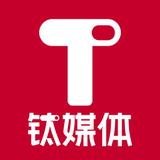TMTPOST -- TMTPost founder and CEO Jany Zhao Hejuan has stood up for Wu Liufang, a former Chinese gymnast with world championship gold medals, arguing that everyone, regardless of their background or profession, should be free to live according to their own choices.
Zhao draws an interesting comparison: if ordinary people can dress as they wish, why can't retired athletes? If social media influencers can perform energetic dances on camera, why can't former athletes? She points out that if certain standards are applied to athletes, such as only gymnasts being allowed to perform gymnastics on camera, and only women being allowed to dance, this reflects a flawed way of thinking for the lack of equality. This so-called "exclusive privilege" doesn't have a place in modern society unless clearly defined by law—such as only licensed doctors being allowed to practice medicine.
Wu has sparked controversy after posting viral "thirst trap" videos on Douyin, the sister app of TikTok in China, which led to her account being partially banned on Sunday.
The 29-year-old former athlete uploaded videos in which she danced in revealing outfits, such as short shorts, mini skirts, and stockings, quickly garnering tens of thousands of likes. However, the videos were eventually removed for violating Douyin’s “community guidelines.”
Olympic gold medalist Guan Chenchen, 20, publicly criticized Wu’s videos, describing her dancing as “disrespectful.” In a comment on Friday, Guan wrote, “Sister, if you want to post thirst trap videos, do it on your own, but don’t taint gymnastics. Your ‘positive energy’ isn’t needed.”
In response, Wu accused Guan of being envious, sparking a heated exchange of sarcastic remarks in the comments section. Wu’s follower count skyrocketed from 55,000 to more than 250,000 amid the back-and-forth.
Zhao points out that societal standards surrounding women’s clothing and career choices are still tightly bound by outdated norms in the 21st century, which she views as a step backward in terms of social progress.
As an entrepreneur, Zhao notes that she personally has no desire to become a provocative dance influencer. However, she stresses that this is not a matter of superiority in career choice, but rather a personal preference. What matters is that she has the freedom to choose her path, just as Wu has chosen to explore a career as an influencer after her retirement from gymnastics.
Wu's wish — “I just want to change my life,” resonates deeply with Zhao, who underscores that personal freedom is the foundation of social progress. Zhao argues that every individual, regardless of their past achievements, should have the right to choose their own lifestyle and career. Wu’s decision to become an influencer and showcase her gymnastic skills along with her sensual appeal is a legitimate expression of her personal career goals. It is not only a recognition of her own worth but also a positive response to the growing diversity in society. Zhao points out that the highest form of respect a society can show is ensuring that everyone has equal and legal rights to live according to their own choices.
Some critics have argued that for a world champion, Wu’s choice of career is undignified. However, Zhao asserts that everyone should have the right to determine their own path in life, whether they are a former athlete or not. The idea that a world champion cannot pursue a career in the entertainment industry, including as an influencer, reflects a restrictive view of personal freedom. A nation's true reputation is not defined by whether its champions maintain a traditional image, but by whether its citizens can live fulfilling lives with opportunities for education, meaningful work, and financial security.
Zhao also challenges the moral judgment that often goes with the public’s expectations for female athletes. Society tends to impose a particular image on women, especially public figures like Wu, expecting them to maintain a traditional and conservative persona. However, as philosopher Michel Foucault has pointed out, power is not just a negative, coercive or repressive thing that forces us to do things against our wishes, but can also be a necessary, productive and positive force in society. Whether someone can transition to being an influencer and express themselves freely should not be limited by their past achievements or gender. The right to live freely and pursue new opportunities is a fundamental personal right.
In the end, Zhao emphasizes that being a world champion is an honor, not a lifelong cage. Wu’s career shift should be seen as an inspiring example for other athletes to embrace new opportunities after retirement. The title of world champion should be used as a stepping stone for future career paths, and it is an athlete’s right to pursue any career they choose as long as it is legal. This is not only a matter of individual freedom but also a matter of dignity for society as a whole.
Zhao concludes that the ultimate respect for society is not in judging others’ choices but in upholding the freedom to make those choices. Whether in sports, entertainment, or any other field, the ability to freely choose one's path is what defines a dignified society.
特别声明:以上内容(如有图片或视频亦包括在内)为自媒体平台“网易号”用户上传并发布,本平台仅提供信息存储服务。
Notice: The content above (including the pictures and videos if any) is uploaded and posted by a user of NetEase Hao, which is a social media platform and only provides information storage services.

 北京
北京






















































